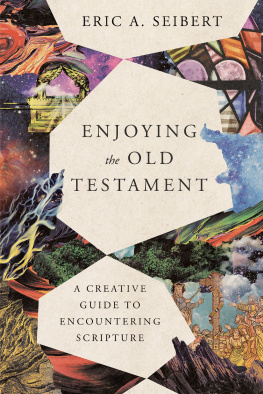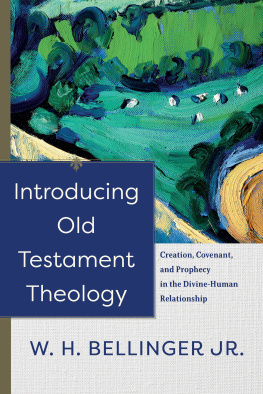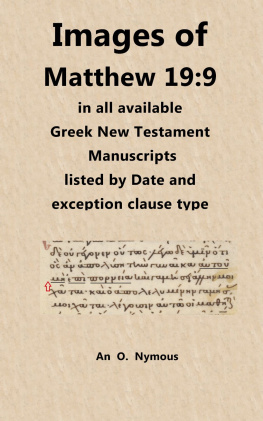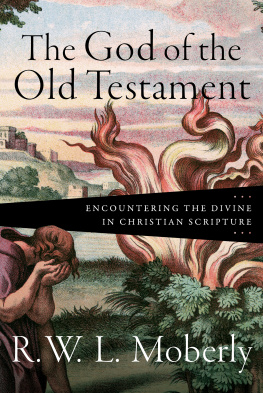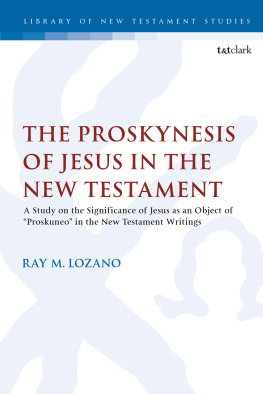Eric A. Seibert - Disturbing Divine Behavior: Troubling Old Testament Images of God
Here you can read online Eric A. Seibert - Disturbing Divine Behavior: Troubling Old Testament Images of God full text of the book (entire story) in english for free. Download pdf and epub, get meaning, cover and reviews about this ebook. year: 2009, publisher: Fortress Press, genre: Religion. Description of the work, (preface) as well as reviews are available. Best literature library LitArk.com created for fans of good reading and offers a wide selection of genres:
Romance novel
Science fiction
Adventure
Detective
Science
History
Home and family
Prose
Art
Politics
Computer
Non-fiction
Religion
Business
Children
Humor
Choose a favorite category and find really read worthwhile books. Enjoy immersion in the world of imagination, feel the emotions of the characters or learn something new for yourself, make an fascinating discovery.

- Book:Disturbing Divine Behavior: Troubling Old Testament Images of God
- Author:
- Publisher:Fortress Press
- Genre:
- Year:2009
- Rating:3 / 5
- Favourites:Add to favourites
- Your mark:
- 60
- 1
- 2
- 3
- 4
- 5
Disturbing Divine Behavior: Troubling Old Testament Images of God: summary, description and annotation
We offer to read an annotation, description, summary or preface (depends on what the author of the book "Disturbing Divine Behavior: Troubling Old Testament Images of God" wrote himself). If you haven't found the necessary information about the book — write in the comments, we will try to find it.
Eric A. Seibert: author's other books
Who wrote Disturbing Divine Behavior: Troubling Old Testament Images of God? Find out the surname, the name of the author of the book and a list of all author's works by series.
Disturbing Divine Behavior: Troubling Old Testament Images of God — read online for free the complete book (whole text) full work
Below is the text of the book, divided by pages. System saving the place of the last page read, allows you to conveniently read the book "Disturbing Divine Behavior: Troubling Old Testament Images of God" online for free, without having to search again every time where you left off. Put a bookmark, and you can go to the page where you finished reading at any time.
Font size:
Interval:
Bookmark:
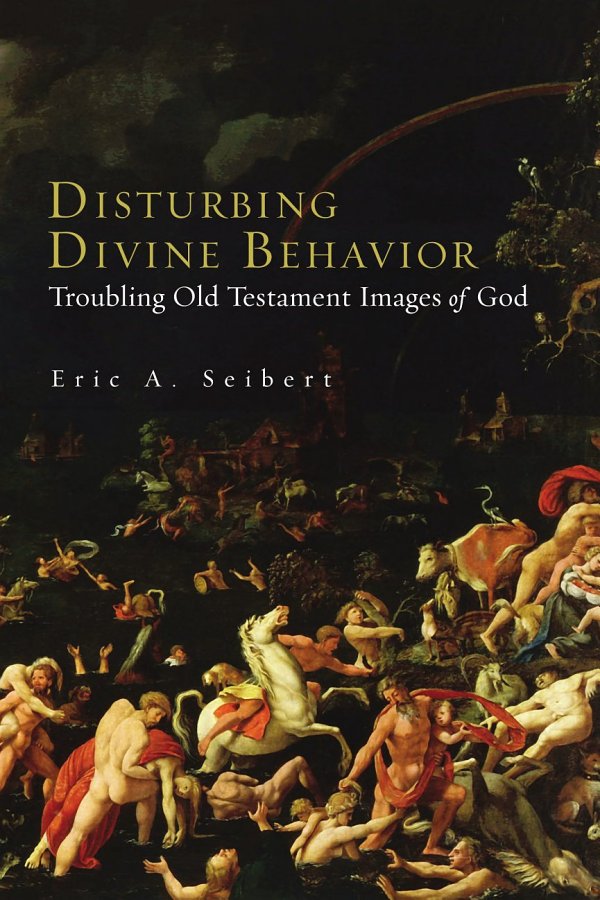



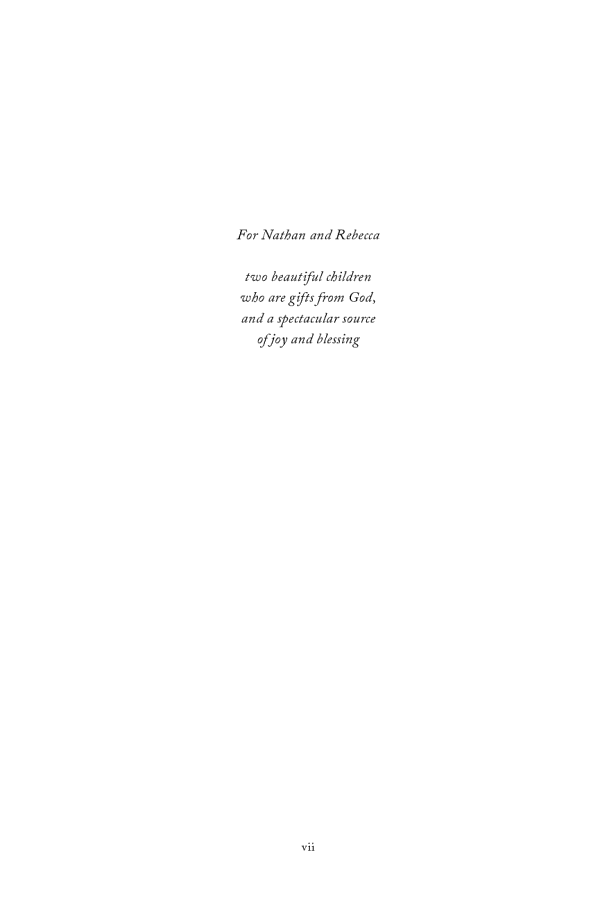
ACKNOWLEDGMENTS
I began writing the first draft of this book in the summer of 2003 and have appreciated the support and encouragement of many people along the way. Messiah college has been especially generous in providing both time and funding to assist my work on this project. This has come in the form of internal grants, an endowed chair, and a sabbatical leave. beyond providing time and money, these awards strongly encouraged me to keep making progress on what turned out to be a considerable undertaking.
I want to express my gratitude to the many Messiah college students whom I have had the privilege of teaching over the years. Their questions and conversation have helped shape my discussion of some of the issues addressed in this book. At various places in the book, I include material from student assignments or from personal correspondence with friends. Thank you one and all for these contributions. I should also say a special word of thanks to the students who took my fall 2007 topics in biblical Theology class dealing with divine violence. Your level of engagement with the ideas presented was encouraging, and I appreciated your willingness to enter into dialogue even when you did not always agree with me.
I was especially fortunate to have several individuals read a draft of this manuscript along the way. to these individualsterry Brensinger, Andrea Dalton, Mike Huffnagle, and Elisa SeibertI extend my sincere thanks. Thank you for your gift of time and your many helpful suggestions. While I take full responsibility for all remaining shortcomings and infelicities, I am confident they are far fewer due to your careful reading. I also wish to thank randy Basinger, Pete Powers, and Dave Weaver-Zercher for taking the time to read the appendix on inspiration and the authority of scripture and to offer feedback. It was helpful! I would also like to thank Sharon baker and Richard crane for using this book in draft form as a textbook in their college classes and for skillfully helping students think about important issues related to divine violence in the bible. Thanks are also due to Joanna Barnhouse for undertaking the tedious job of compiling the indices, a task she completed with good cheer and care. At several points in the book, I quote from student assignments or email correspondence I received, and I wish to thank each of the individuals responsible for this material. To the others whose names I cannot remember, and to the many authors whose books and articles have assisted me along the way, I offer my thanks. I am also grateful to Fortress Press for accepting this book for publication and for working with me to complete it. Neil Elliott in particular, deserves a special word of thanks for his many efforts on my behalf. Thank you for your time, patience, and assistance. I also benefitted from Andrew DeYoungs assistance in the latter stages of production, and wish to express my thanks for his help.
Finally, I wish to express my profound gratitude to Elisa, my wife and best friend. She has engaged in more conversations about disturbing divine behavior and related issues than any spouse should need to endure, and has done so with characteristic grace and goodwill. Her close reading of the manuscript resulted in a much better product and substantially improved this book in numerous ways. Thank you, Elisa, for your unfailing love, support, and good counsel. They mean the world to me.
To all who read this book, I sincerely hope you find it helpful as you endeavor to deal responsibly with disturbing divine behavior in the Old Testament, and as you seek to know and serve God.
PROLOGUE
The Story of the Man Who Gathered Sticks and Got Stoned
Tucked away in the book of Numbers, amid instructions about offerings and Israelite apparel, you will encounter a little-known story about a man who makes the ill-fated decision to gather some firewood on the sabbath. The passage, in its entirety, is as follows:
When the Israelites were in the wilderness, they found a man gathering sticks on the sabbath day. Those who found him gathering sticks brought him to Moses, Aaron, and to the whole congregation. They put him in custody, because it was not clear what should be done to him. Then the Lord said to Moses, The man shall be put to death; all the congregation shall stone him outside the camp. The whole congregation brought him outside the camp and stoned him to death, just as the Lord had commanded Moses. (Num. 15:32-36)1
Gods behavior in this passage is troubling to many readers. Why would God sentence a man to death for gathering firewood on the sabbath? Doesnt that seem a bit extreme? It did to a former student of mine who made the following journal entry after stumbling across this passage:
I was reading through Numbers, just skimming across the chapters, and I came across chapter 15 verses 32-36. This story seemed VERY harsh to me, especially from this gracious God Im supposed to be serving!...
The story tells about a man who didnt honor the sabbath, but instead gather[ed] sticks. When you think about it, how harmless is gathering sticks? Apparently it is VERY harmful! The Israelites took the man, and brought him before God. God told them to STONE THE MAN! This is horrible! it seems as if there are MANY reoccurring themes like this where God just seems ruthless in the OT. How could this God have people KILL a man for gathering sticks on the sabbath? I really have no answer to this question.2
If you have ever felt like this studentdisturbed by Gods behavior in the Old testament but unsure what to do about itthen read on. This book is for you.
INTRODUCTION
Thinking Rightly about God and the Problem of the Old Testament
The overwhelming image of God in the Bible is that of a brutal, violent, and vengeful judge. In a world being torn apart by violence, there is no more urgent task than to counter the Bibles frequent and nauseating portraits of a ruthless and violent deity. The cruelty of God, however, is a problem that almost no one is willing to face squarely, including Christian interpreters.
Jack Nelson-Pallmeyer1
Our understanding of God has enormous practical significance.... What we think of God and how we respond to Him are closely related. An inaccurate view of God can have disastrous effects on personal religious experience. We could never love a hostile, tyrannical being.... And we could not respect a mild, indulgent figure who never took us seriously. Our personal religious experience can be healthy only if we hold an adequate conception of God.
Richard Rice
In a course I teach titled Issues of War, Peace, and social Justice in biblical texts, we spend some time looking at the image of God as divine warrior in the Old Testament. The first couple of assignments require students to read passages like Exodus 115, Joshua 611, and 1 Samuel 15. These passages portray God as involved in horrific acts of violence: sending devastating plagues on Egypt, commanding the total destruction of Canaanite cities, and commissioning Saul to utterly annihilate every last Amalekite. This is new terrain for some students, even for some who have grown up hearing bible stories all their lives. One semester, after just the second day of class, a student wrote a journal entry revealing the significant impact reading these passages was having on her. She writes:
Font size:
Interval:
Bookmark:
Similar books «Disturbing Divine Behavior: Troubling Old Testament Images of God»
Look at similar books to Disturbing Divine Behavior: Troubling Old Testament Images of God. We have selected literature similar in name and meaning in the hope of providing readers with more options to find new, interesting, not yet read works.
Discussion, reviews of the book Disturbing Divine Behavior: Troubling Old Testament Images of God and just readers' own opinions. Leave your comments, write what you think about the work, its meaning or the main characters. Specify what exactly you liked and what you didn't like, and why you think so.

